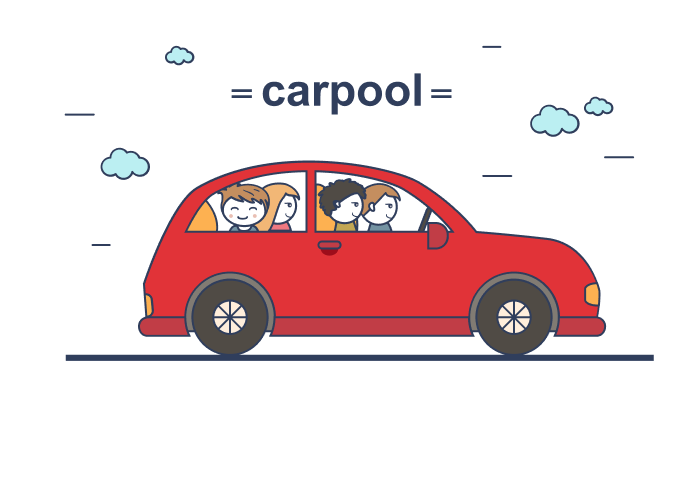The benefits of carpooling and tips for setting up a carpooling arrangement.

Carpooling is a popular and eco-friendly way to save money on gas, reduce traffic congestion, and help the environment. By sharing a ride with others, carpoolers can save money on fuel and reduce the number of cars on the road, which can help reduce traffic congestion and lower greenhouse gas emissions.
One of the main benefits of carpooling is cost savings. By sharing the cost of fuel with others, carpoolers can save money on gas and reduce their monthly transportation expenses. In addition, carpoolers may also be eligible for special perks and discounts, such as access to carpool lanes and reduced parking fees.
Another benefit of carpooling is reduced traffic congestion. By sharing a ride with others, carpoolers can help reduce the number of cars on the road, which can help alleviate traffic congestion and make the roads safer and more efficient for everyone.
Carpooling can also help the environment by reducing greenhouse gas emissions. By reducing the number of cars on the road, carpooling can help lower the amount of carbon dioxide and other pollutants released into the atmosphere. This can help improve air quality and protect the environment.
To set up a carpooling arrangement, follow these steps:
- Identify potential carpool partners: Look for people who have similar commuting routes and schedules to yours, such as coworkers, neighbors, or friends.
- Set up a schedule: Determine the days and times that you will be carpooling, and agree on a schedule with your carpool partners.
- Establish rules and guidelines: Determine the rules and guidelines for your carpool, such as who will be responsible for driving, who will pay for gas, and how many passengers will be allowed in the car.
- Communicate regularly: Keep in touch with your carpool partners and communicate regularly to ensure that everyone is on the same page.
By setting up a carpooling arrangement and sharing a ride with others, you can save money, reduce traffic congestion, and help the environment.